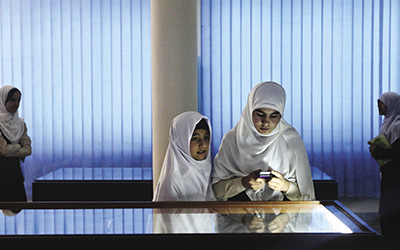Letter to the Editor
Dear CMJ,
Canadian Forces 2014 withdraw from Afghanistan. …It’s up to ‘The Bieber’ now.
by Lieutenant (N) David Lewis
Canada and the coalition forces are scheduled to withdraw from Afghanistan in 2014. One of the most verbalized concerns of Afghans is the uncertainty of the aftermath of this withdrawal. There are many who fear a repeat of the era which followed the Soviet departure in 1989. The disengagement of the USSR and the abandonment by the West created a power vacuum which was eventually filled by radical elements.
Much has changed since the last Russian soldier walked back across the Friendship Bridge into Uzbekistan. In 1989, they left behind an isolated and parochial Afghanistan which had changed little over millennia. It was a land where information was dispersed almost exclusively through tribal leaders. Throughout its history, Afghanistan has remained a warlord dictated information vacuum.
The world today is much smaller than it was even two decades ago. International boundaries, cultural differences, and social barriers are all blurred by the onslaught of easily accessible new media. Afghanistan is no longer immune. In the past 10 years, the dramatic advance of Facebook, Twitter, YouTube and other social media platforms have affected the country to Guttenburg proportions.
The Taliban forbade the use of the Internet. They deemed it a Western propaganda tool that broadcasted obscene, immoral, and anti-Islam material. Afghans only began to have internet access after the Karzai administration took office in 2002. Since then, there has been a phenomenal growth in wireless companies, internet providers, radio stations, and television channels. The telecom sector leads economic reconstruction, with four mobile service providers covering 75 percent of the country with over 2400 towers. As of 2012, about 85 percent of the country's population has access to communication services. There are over eighteen million mobile phone users with 4G service, launched in 2013.
Afghans are also using Twitter and Facebook to bring about social change. In 2012, there were over a half-million Facebook accounts registered within Afghanistan. The majority of Afghans online are between 18 and 35 years old. This is a prime demographic for change within their country.
As the last rotation (Roto) of Op Attention recently left for Afghanistan, I look back over the last 10 years and my own experience in-country. The Canadian Armed Forces have stood strong and paid an enormous price for helping to defeat the Taliban, and by assisting in ‘rebuilding’ a country that was never ‘built’ in the first place. We have done a lot of things right in Afghanistan.
I think history might show that our greatest accomplishment, with the best residuals, was that for the first time in the country’s history, we created a climate which allowed for other voices. These other voices influenced, awoke, inspired, and challenged the Afghan people. They moved out of isolation into inclusion.
Some will see this as simplistic. There are, no doubt, a vast number of other factors which will affect a post-2014 Afghanistan. We must, however, recognize that the country today is a vastly different country than at any other point in its isolated history. Walls that defended against external forces have crumbled as a result of an internal tide. Afghan eyes are wide open, and they want more. Radical Islam will be defeated by the rise of the Muslim middle class. As Afghans go online, on Ebay, on Amazon, on Autotrader, as they visit over 3800 online television stations and explore the world, they will refuse to be led back into the vacuum. Tribal leaders and Taliban will always have a voice, but they will be reduced to one voice amongst thousands.
A million Afghan girls wanting to listen to ‘The Bieber’ on their I-phones might do more to ensure long-lasting change than all the coalition forces combined. Whatever 2014 brings, it cannot be 1989.
David Lewis
Lieutenant (N) David Lewis was Deputy Director of Social Media for NATO Training Mission – Afghanistan, stationed at Camp Eggers, Kabul, in 2011.

Reuters RTR2RZ91 by Mohammad Ismail







